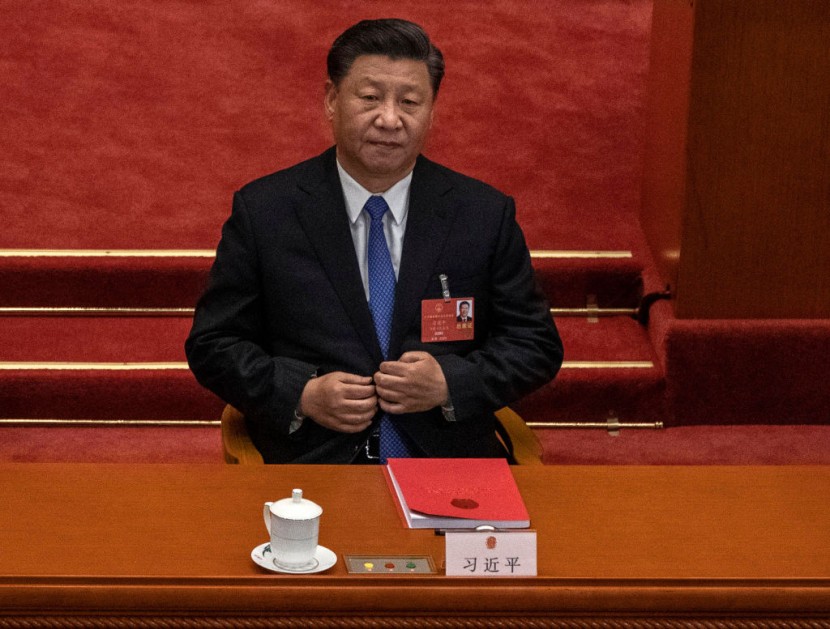
China has issued a chilling statement, saying it "welcomes" the Taliban as Afghanistan's new administration with open arms and wishes to build good ties with them in the future.
Hua Chunying, a spokeswoman for China's foreign ministry, proclaimed China's complete support for the Taliban as the insurgents take control of Afghanistan during a press conference on Monday. Chunying highlighted how China "welcomes" future efforts of engagement in the rehabilitation and development of Afghanistan as they seek positive ties with the terror group during the terrifying address.
Taliban's takeover in Afghanistan poses a chance for China to deepen ties
China, on the other hand, has demanded that the Taliban not host Uyghur Islamists from China's western Xinjiang province, a group that has carried out terror strikes against the country. In Tianjin last month, a high-ranking Taliban team met with Chinese Foreign Minister Wang Yi, assuring that Afghanistan would not be used as a base for militants.
However, while China may be prepared for the Taliban to retake power in Afghanistan, there are still fears that the bilateral relationship may be harmed. China is concerned about the Taliban's ascent in the region's spillover effect, which might affect Beijing's economic interests in Central Asia and Pakistan, as per The Independent.
According to Niva Yau, a researcher at the OSCE Academy in Kyrgyzstan, China relies on several of its Central Asian neighbors for natural resources such as gas and natural gas, in addition to its economic involvement in the area. However, China's worry about an Afghan government dominated by the Taliban extends beyond its economic interests.
Beijing has profited from the stability that the American military presence has brought over the last two decades. However, with the departure of US troops, China is now afraid that Afghanistan might become a stronghold for extremists with ties to Xinjiang.
The Taliban takeover was easier than the presidential transfer earlier this year, according to a spokesperson of Chinese official media mocking the US withdrawal from Afghanistan. Hu Xijin, an editor of the state-produced Global Times sent a tweet on Sunday and referred to information that individuals had shared on Weibo, China's version of Twitter. Some of the posts were translated by Business Insider.
Hu also tweeted that Taiwan's democratic government could follow the example of Afghanistan and rejoin mainland China, a communist country because it would not be aided by the US. In a Monday tweet, Hu praised China's policy of non-interference. Secretary of State Antony Blinken discussed the situation in Afghanistan with his Chinese counterpart, Foreign Minister Wang Yi, Daily Mail reported.
China eyes on Taliban-run Afghanistan
As the Taliban takes control of Afghanistan, China will keep a careful eye on the situation to determine whether it can gain economic or political advantage by cooperating with the militants. Kabul, Afghanistan's capital, fell to the Taliban in a couple of days, rather than the weeks' many foreign observers predicted. As the US departed, the Taliban sowed bloodshed across the nation and had essentially destroyed the Afghan Armed Forces.
Per Washington Examiner via MSN, China also appeared to be preparing for the possibility that the US exit might lead to the return of Islamist rule in Afghanistan, hosting key Taliban officials in Tianjin lately. Mullah Abdul Ghani Baradar, who currently inhabits Kabul's presidential palace, led a Taliban team that met with Chinese Foreign Minister Wang Yi.
After the meeting, a Taliban spokesperson stated that China would not intervene in Afghan affairs but would "help to address the problems and restore peace in the country." While not as extensive as in some other Asian nations, China's economic prospects in Afghanistan are substantial. Minerals worth $1 trillion to $3 trillion, for example, are believed to be held by the government.
According to some accounts, it also has one of the world's greatest reserves of rare earth elements, which are used to make military weapons, batteries, and other high-tech items. China's involvement in Afghanistan will be contingent on whether the Taliban's grip on the nation is considered solid.
@YouTube
© 2026 HNGN, All rights reserved. Do not reproduce without permission.








